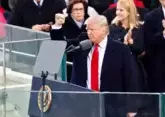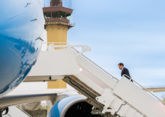Qatar agreed to pour $15 million worth of direct investment into Turkey this month to help its allies see off a serious drop in the lira’s value, but by doing so it has risked losing vital U.S. support in its ongoing feud with countries led by Saudi Arabia, analysts wrote in an article published by think tank Foundation for Defense of Democracies.
Ahval reports in its article Qatar’s $15 bln bailout to Turkey risks losing U.S. – think tank that the Turkish economy was on the brink of a precipice earlier this month after the announcement of U.S. sanctions and tariff hikes in retaliation for Turkey’s imprisonment of U.S. citizens and employees sent the lira into freefall.
Qatar’s announcement of $15 billion in direct aid to Turkey helped arrest the decline in the lira, which bounced back to partially recover losses and stabilise last week.
“Washington should remind Doha that this move will undermine its recent efforts to mend its strained ties with the United States,” wrote Aykan Erdemir and Varsha Koduvayur for the Washington D.C.-based think tank.
Qatar is Turkey’s most natural ally, due to both countries’ governments’ similar worldviews and support for political Islam. Ankara was quick to jump to Doha’s aid in 2017, when Saudi Arabia, the United Arab Emirates, Bahrain and Egypt began to impose a blockade for Qatar’s alleged support for illegal organisations.
The support may also have been motivated by Qatar’s deep economic ties to Turkey, given that a serious Turkish financial crisis could prove disastrous for the Qatari economy.
“With around 15 percent of the assets and loans of Qatar National Bank exposed to Turkey, fears of contagion may have fueled Doha’s announcement as much as geopolitics did,” said the analysts.
While the exact details of how the $15 billion will be invested have been kept wisely ambiguous, the decision to undercut U.S. foreign policy could have serious repercussions and even threaten the continued presence of U.S. troops at a base in the country, the analysts warned.
“When the crisis between Qatar and its Arab neighbors erupted in the summer of 2017, President Trump initially appeared to side against Qatar. But Doha worked assiduously over the past year and gradually succeeded in bringing the Trump Administration to a more neutral position,” said Erdemir and Koduvayar.
“Its decision to side so blatantly with Erdogan against the United States on a matter directly affecting the wellbeing of American citizens could put much of that progress at risk,” they said.'










